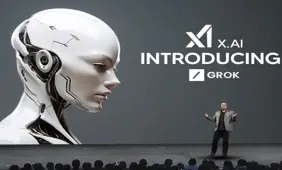Are Memecoins Exposing the Volatile Nature of Cryptocurrency Trends?
Haliey Welch’s Hawk memecoin shot to prominence when it launched, but it has since lost most of its value leading experts to warn that these digital tokens, often tied to fleeting internet trends, function more like gambling than a legitimate investment.

Haliey Welch, creator of Hawk memecoin. Experts warn memecoins like Hawk are gambling.
Launched on December 4, Hawk memecoin initially grew to a market capitalization of $490 million. However, within hours, its value plummeted to just $17 million.
Welch, a Tennessee influencer known for her viral social media presence, and ‘Bet On That Thang’ trademark sportsbook, faced accusations of exploiting her followers. Crypto commentator Stephen Findeisen, also known as Coffeezilla, called it a “rug pull”, which is a scheme where developers create hype to make quick profits before abandoning the project.
Despite the controversy, Welch claims her team has not sold any tokens, and the coin remains in circulation.
The Soaring Popularity of Memecoins
Hawk’s dramatic rise and fall demonstrates the broader risks of memecoins. These tokens have seen a meteoric rise in popularity, with their market value growing from $20 billion at the start of the year to $118 billion today. However, finance experts, such as Carol Alexander, a finance processor at the University of Sussex, regularly warn that memecoins, and indeed all cryptocurrencies, have no underlying value.
Memecoins rely on internet memes and social media influencers to fuel their appeal, but this leaves them highly vulnerable to speculation. Sam Baker, a trader who specializes in memecoins, said that their launches rely on internet trends that most “have never even heard of” and that they rely on influencers to push them. As such, he says that they have “no intrinsic value” and it is impossible to predict which will succeed.
It is a pure form of gambling. It is like buying a lottery ticket. But some of them are going to rise by 10,000% or 20,000%. It’s monetising people’s attention from social media. It’s a crossover from web 2.0, which is social media, to web 3.0, which is decentralised finance and crypto. Although they are bonkers, memecoins represent the modern monetisation of the attention economy.
More Technology News
 Technology
Technology
Kalshi Partners with Musk's xAI to Bring Grok to Kalshi's Prediction Markets
Jul 30, 2025The Politicization of Memecoins
The interest memecoins has also gained momentum from political developments. Donald Trump’s victory in the US presidential election and his pro-crypto stance have reignited interest in digital assets. Bitcoin, for example, surged past $100,000 within a month of his win.
Elon Musk has also played a role in popularizing memecoins, championing Dogecoin, a token initially created as a parody. Despite its origins, Dogecoin now holds a market value of $60 billion.
Yet experts like Merav Ozair, founder of Emerging Technologies Mastery, caution against viewing memecoins as anything more than speculative bets, “It’s just going to a casino and seeing which number is going to win.”
RELATED TOPICS: Technology
Most Read
Nevada Official: Steve Wynn Agreed to $10 Million Fine After Witness List Included Ex‑Wife
Dec 08, 2025Must Read
 Interviews
Interviews
Exclusive Interview: Levon Nikoghosyan Shares AffPapa Winning Formula for Successful iGaming Events
Dec 03, 2025 Interviews
Interviews








Review this New Post
Leave a Comment
User Comments
Comments for Are Memecoins Exposing the Volatile Nature of Cryptocurrency Trends?